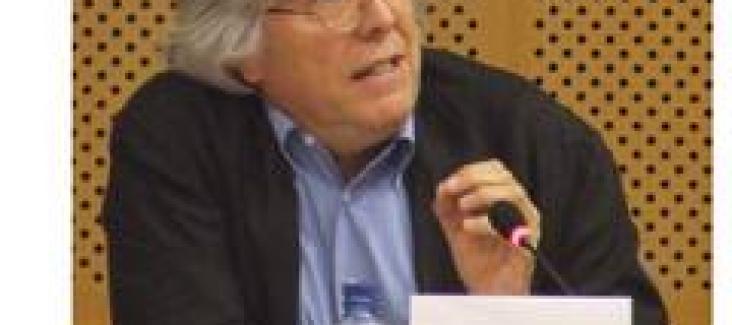Democracy International: Why do we need direct democracy?
Andreas Gross: We need direct democracy for many different reasons.
First of all, democracy is much more than participating in elections and delegating power to the parliament. Those who are affected by a decision should be included directly in decision-making. Also, direct democracy is about freedom. You are free when you have the opportunity to influence your livelihood yourself and do not determine those who will decide about your life on your behalf.
Secondly, most citizens are politically capable to do much more than choosing from different options. There is a lot of citizens’ know-how that is not used properly. Or, let us put it differently, the state does not manage to properly make use of society’s potential. This frustrates people who are politically interested and limits public debate.
A third cause for direct democracy is learning. People learn most who participate in political decisions. These days we need learning societies who aim at contributing to the overall whole.
Finally, direct democracy has creative potential for the individual. While acting together with others people gain trust and confidence. We need this trust to democratize European and global structures of power. We need democracy at transnational level. Transnational democracy allows us to keep our democratic promise, i.e. the fair distribution of opportunities and justice.
In your view, what is a good procedure of direct democracy?
Good direct democracy is the capacity to recognize procedural deficits and to correct them. Never there will be an absolute perfect procedure, but we can always try to realize the ideal as much as possible.
Also, good direct democracy is about complementing representative democracy with procedures of legislative and constitutional referenda as well as legislative and constitutional initiatives. These instruments allow citizens to take in their own hands political issues and the development of the state.
Moreover, we have to fix the quora of citizens‘ initiatives and referenda in a way that allows small groups to make use of these instruments. Direct democracy must not be a privilege of well organized, financially well-equipped organisations that are listened to in the parliaments.
Rule of law and democracy. What comes first? Should the constitutional state limit decisions that were taken by direct democracy?
Of course! Direct democracy must not derail and become a tyranny of the masses. Fundamental rights as well as minority rights do not depend on the consent of the majority. There is no democracy without a limitation of the rule of law that was democratically constituted. Or let me put it differently, there is only rule of law when a democratic assembly has constituted the law – mostly in a referendum. In case there are issues about judicial interpretation, the courts decide – and hence not the majority of the decision. For example, let us look at the French declaration of human rights of 1789. The declaration says that any citizen can act freely; however, they are answerable for abuse of this freedom as determined by law.
Your book „Transnational Democracy – Impulses for a democratic constitution of Europe“ was published in 1995. These days, Europe discusses a new foundation of Europe, but nobody dares to do the first step. What should be the guiding principles for a new constitution of Europe?
These days it is very important to realize a democratic European convention to be constituted for several years and to be directly elected. There needs to be a referendum. All EU states and interested Europeans should participate in this referendum. Accordingly, we have to agree on the procedure and what to do with the result. These questions should be put down with the European Parliament and the European Citizens’ Initiative.
How should a European referendum take place in your opinion? How should the votes by the Member States be treated?
The starting point must be that year Europeans – who represent three fourth of all EU Member States - choose to hold a referendum about a European norm, which they submit as a proposal. The EU institutions then discuss the proposal within 12 months and the EU institutions can make amendments. Subsequently there will be the actual campaign with a length of six months. EU Member States will give groups that are campaigning for and against the referendum sufficient means to allow a fair and well balanced campaign. Votes can be casted within three weeks directly, per post or electronically.
When will we see Switzerland in the European Union?
I am afraid this still will take some time. For more than 20 years I have been working on making the EU more democratic and federal. Doing so, I am grateful that Europeans accept me as a Swiss citizen who contributes ideas to the European debate. I doubt that Swiss people would be as open.
I believe that we must learn from each other much more. For example, we should discuss which typical elements of each country should be integrated into the European constitution. This would allow us –and Swiss people also- to identify with the European Union. Each country will find in the European constitution which works well in their own country. For Switzerland this would be direct democracy and her twin sister, federalism.
Questions by Daniel Schily
Translation from German by Cora Pfafferott

